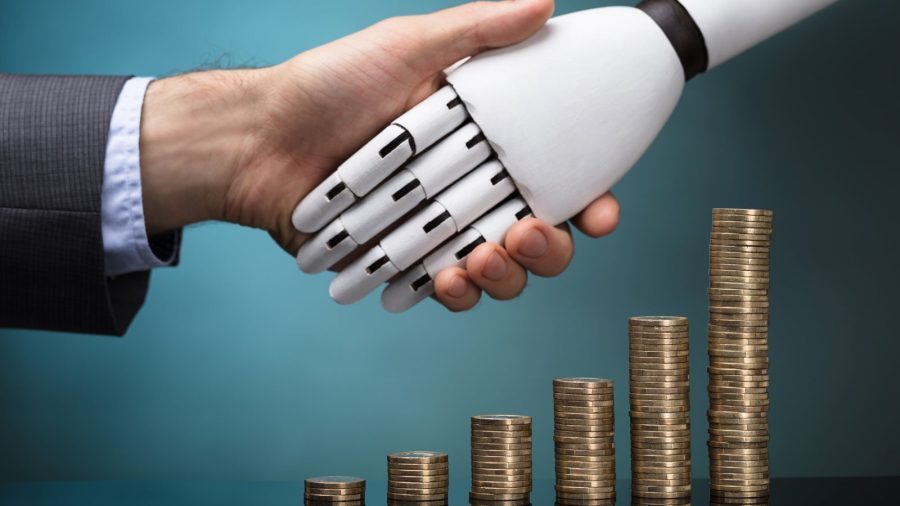Disclaimer: This article is for entertainment purposes only and cannot be used for financial advice.
Artificial Intelligence is a term that has been gaining considerable traction in recent years and, in its very early days, is already having a big impact on society. Where it is also having a big impact is on the financial sector, and especially on investing. To what extent is Artificial Intelligence changing investing?
Advantages
First of all, AI allows for more automation. This works through what is known as quantitative trading. This involves creating algorithms that seek out market inefficiencies to take advantage of them. This is done at high speed, allowing for high returns in a short time. Currently, hedge funds in particular make use of this. The use of AI by hedge funds has therefore exploded in recent years. According to a study by Barclay Hedge Fund, more than half of all hedge funds use Artificial Intelligence to achieve higher returns. However, these hedge funds do not achieve more returns directly. The reason is that it is difficult to interpret outcomes of these algorithms. This requires specially trained workers, of which there is currently a shortage. Private investors can also use AI. For instance, websites like ChatGPT are used for investment advice (Investing News Network, 2023).
Secondly, Artificial Intelligence enables easier and faster analysis of large data sets. As a result, good investment opportunities are identified faster, allowing for greater returns. Artificial Intelligence also makes it easier to analyse risks. Companies like Deloitte have developed special programmes for this.
Next, fraud can be spotted more easily thanks to the advent of Artificial Intelligence. This way, investing remains fairer and investment platforms can more easily guarantee their integrity. For example, if particularly large trades are suddenly made to a bank account or if a disproportionate number of investors go short in a limited period of time, the AI model identifies this as potential fraud. The model then sends a notification to the investment platform and action is taken.
Risks
Many people are concerned about the impact of AI, including well-known investors including Warren Buffett. He is not optimistic about the future of the technology and calls it a danger to society. He even compares it to the atomic bomb. Despite his concerns, he does invest indirectly in AI. As much as 47% of Berkshire Hathaway consists of Apple shares, and that while Apple is aggressively investing in building products that work with Artificial Intelligence. It also owns $1B worth of Amazon shares (less than 1% of its portfolio). So Warren Buffett sees no future in the technology, but rather in the companies actively implementing it; which is curious to say the least.
Another drawback is that the technology can actually be used to commit fraud. The technology can cause identity fraud with the result that investors are hacked. In addition, stock markets can be manipulated. Algorithms created by an AI model contain such a variety of features and functions that traditional algorithms do not have, making it easier to manipulate markets. To prevent this, financial authorities need strict supervision (Ligon, 2023).
Another risk is that Artificial Intelligence mainly takes past returns into account. These are no guarantee for the future and can therefore only be used as a tool.
Furthermore, AI can lead to discrimination. While this may not be directly related to investing, it is an issue that deserves extra attention. Implementing technology may cause certain people or companies to be excluded, resulting in discrimination. Therefore, it is important not to blindly rely on Artificial Intelligence and use it only as a tool.
Conclusion
The advent of Artificial Intelligence brings many consequences; not only for society but also for the financial world. It brings many benefits; for instance, large data sets can be more easily analyzed, allowing opportunities to be identified faster. This should ensure higher returns. Unfortunately, this new technology also has drawbacks. For instance, Artificial Intelligence can lead to fraud and can be used to manipulate the market. Furthermore, care must be taken to ensure that it does not lead to discrimination. To ensure that these drawbacks do not take place, it must be strictly supervised by financial authorities. If this happens, the new technology certainly has a future in the world of investing. Furthermore, retail investors should never simply follow financial advice from an AI chat box like ChatGPT.
















